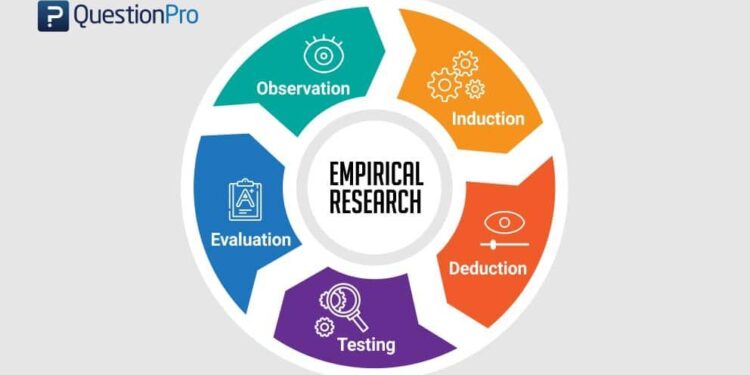In a rapidly evolving global economy, small and medium-sized enterprises (SMEs) play a crucial role in driving innovation and economic growth. A recent study published in Humanities and Social Sciences Communications sheds light on the intricate relationship between research and development (R&D) capabilities and value creation, specifically within the manufacturing sector in Lagos, Nigeria. As the largest city in Africa, Lagos is a burgeoning hub for SMEs, but many of these businesses struggle to harness their R&D potential. This empirical analysis delves deep into the ways these enterprises are navigating the challenges and opportunities presented by R&D investments. By examining selected SMEs in the region, the study offers valuable insights that could inform policy decisions and strategies aimed at enhancing competitiveness and fostering sustainable development. As the landscape of manufacturing in Nigeria continues to evolve, understanding the dynamics of R&D capability becomes essential for driving long-term value creation in this vibrant marketplace.
Exploring the Link Between R&D Capability and Value Creation in Lagos Manufacturing SMEs
The empirical analysis conducted on manufacturing SMEs in Lagos reveals a significant correlation between R&D capability and value creation. Companies that invest in research and development not only enhance their product offerings but also improve operational efficiencies, leading to higher profitability. This research underscores the importance of cultivating R&D as a core business strategy, prompting SMEs to prioritize innovation and creativity. Findings suggest that successful firms often exhibit the following traits:
- Flexible Innovation Processes: Adapting quickly to changing market demands boosts competitiveness.
- Collaborative Partnerships: Engaging with local universities and research institutions fosters knowledge exchange.
- Employee Empowerment: Encouraging staff to contribute ideas can lead to breakthrough innovations.
Moreover, the analysis highlights that value creation extends beyond financial metrics; it encompasses social and environmental considerations. SMEs that integrate sustainability into their R&D efforts not only resonate with increasingly conscious consumers but also gain a competitive edge. The following table summarizes the key areas where R&D investment catalyzes value creation:
| R&D Investment Area | Value Creation Impact |
|---|---|
| Product Innovation | Increased market share and customer loyalty. |
| Process Improvement | Cost reduction and enhanced productivity. |
| Talent Development | Attractive workplace fostering employee retention. |
Key Factors Driving Innovation and Competitive Advantage in the Local Economy
Recent empirical analysis highlights several key factors that contribute to innovation and competitive advantage within Lagos’ manufacturing small and medium enterprises (SMEs). Central to this dynamic is the investment in research and development (R&D) capabilities, which significantly enhances a firm’s ability to create value and respond to evolving market demands. Furthermore, SMEs that foster a culture of collaboration and knowledge sharing with local universities and research institutions often demonstrate superior innovation outcomes. This synergy not only accelerates product development but also ensures that businesses remain agile and ready to capitalize on emerging opportunities.
In addition to R&D investments, factors such as access to technology, skilled workforce, and the presence of a supportive business ecosystem play critical roles. Companies leveraging advanced manufacturing technologies have reported enhancements in efficiency and overall productivity. Moreover, firms that prioritize workforce training and development tend to outperform their competitors in innovation metrics. The table below illustrates the competencies that directly correlate with value creation in these SMEs:
| Competency | Impact on Innovation | Example |
|---|---|---|
| R&D Investment | Increased product innovation | New eco-friendly packaging solutions |
| Skilled Workforce | Improved process efficiency | Adoption of automation technologies |
| Technology Adoption | Boost in operational productivity | Utilization of advanced manufacturing software |
Strategic Recommendations for Enhancing R&D Investment Among Small and Medium Enterprises
To bolster research and development (R&D) within small and medium enterprises (SMEs) in Lagos, Nigeria, a multi-faceted approach is essential. Firstly, it is vital to foster a culture of innovation through targeted training programs that equip SME employees with the necessary skills in R&D processes. Companies should consider collaborating with universities to create internship programs where students can contribute fresh ideas while gaining practical experience. Additionally, establishing incubation hubs can provide SMEs with the resources and networking opportunities they need to scale their ideas into viable products. These hubs can also facilitate access to funding and mentorship, crucial for navigating the complexities of R&D.
Moreover, financial incentives from the government can play a pivotal role in enhancing R&D investment among SMEs. Implementing tax breaks or grants specifically tailored for R&D projects can motivate SMEs to allocate their resources toward innovation. Furthermore, fostering partnerships with larger corporations can enhance knowledge-sharing and facilitate technology transfer, which are essential for SME growth. To keep track of progress, SMEs should establish clear R&D performance indicators to measure success and iterate strategies as needed. The collaborative effort across these areas can lead to a more vibrant innovation ecosystem, ultimately resulting in increased competitive advantage and value creation for SMEs in Lagos.
In Retrospect
In conclusion, the empirical analysis of research and development capabilities in selected manufacturing SMEs in Lagos, Nigeria, reveals a significant link between innovative practices and value creation. This study underscores the critical need for small and medium enterprises to invest in R&D to enhance their competitive edge in a rapidly evolving market. The findings not only shed light on the unique challenges faced by these businesses in the Nigerian context but also offer insights into the opportunities that lie ahead. As the manufacturing sector continues to play a vital role in Nigeria’s economic landscape, fostering a culture of innovation could unlock new pathways for sustainable growth and development. Policymakers and business leaders must collaborate to create an enabling environment that supports the R&D aspirations of SMEs, thereby ensuring that these enterprises contribute effectively to the nation’s economic transformation. As we move forward, the lessons drawn from this analysis could serve as a blueprint for similar initiatives across the region, paving the way for a more resilient and innovation-driven economic future.














